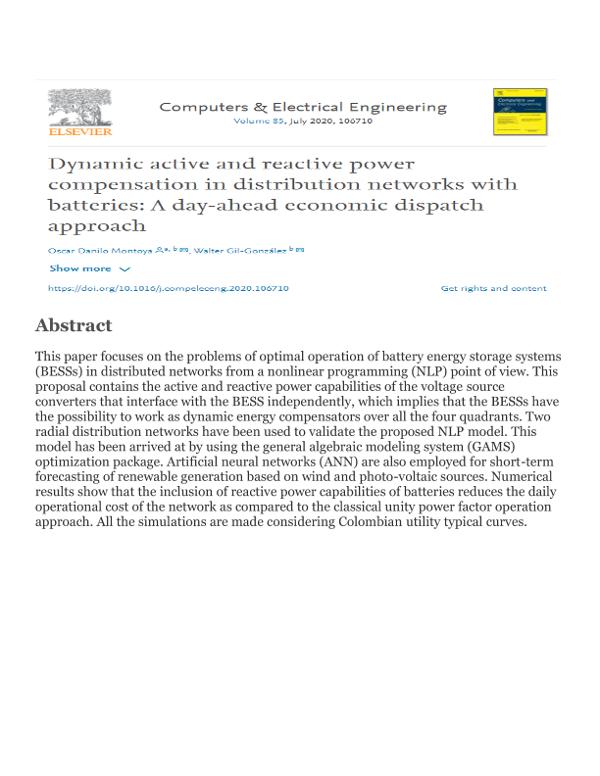Abstract
This paper focuses on the problems of optimal operation of battery energy storage systems (BESSs) in distributed networks from a nonlinear programming (NLP) point of view. This proposal contains the active and reactive power capabilities of the voltage source converters that interface with the BESS independently, which implies that the BESSs have the possibility to work as dynamic energy compensators over all the four quadrants. Two radial distribution networks have been used to validate the proposed NLP model. This model has been arrived at by using the general algebraic modeling system (GAMS) optimization package. Artificial neural networks (ANN) are also employed for short-term forecasting of renewable generation based on wind and photo-voltaic sources. Numerical results show that the inclusion of reactive power capabilities of batteries reduces the daily operational cost of the network as compared to the classical unity power factor operation approach. All the simulations are made considering Colombian utility typical curves.













